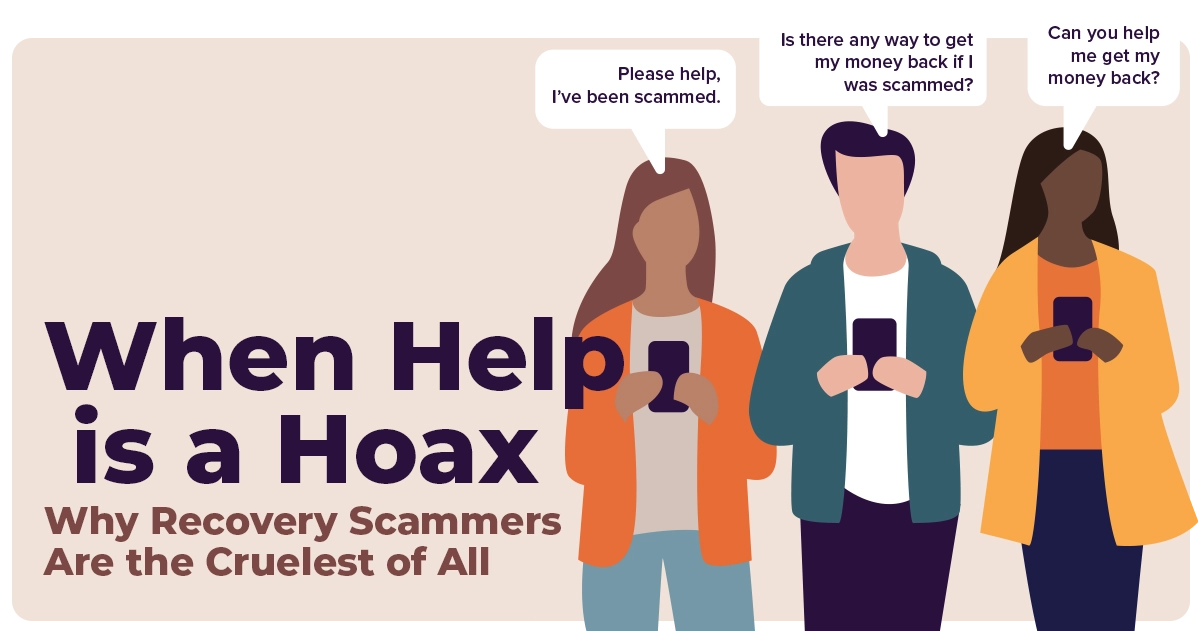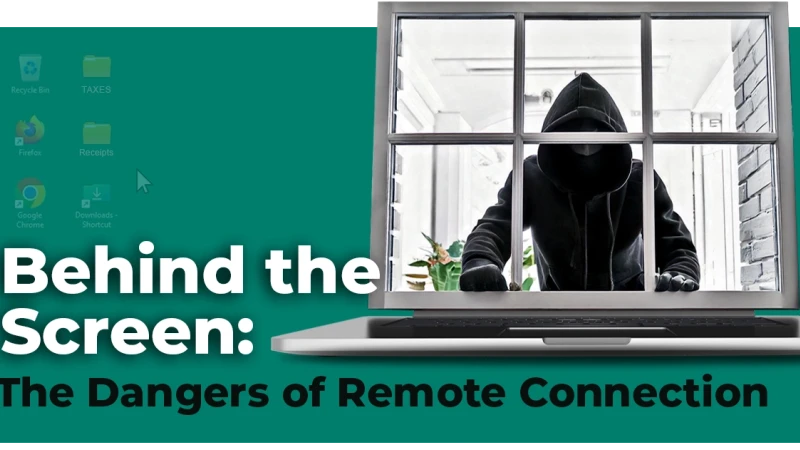At Seraph Secure and the Kitboga Show, we receive emails daily from people in desperate situations looking to recover money they’ve lost to scams. Whether it’s a plea for help or a question about the legitimacy of a recovery company, it’s very clear that the emotional toll of being scammed doesn’t stop when the scam itself does.
If you’ve fallen victim to a scam – like one in three Americans who have – or know someone who has, you may already be in the crosshairs for a second round of exploitation. Recovery scammers prey on victims at their lowest, promising they can undo the damage and get your money back – for a price.
The Second Scam
Put yourself in the shoes of a scam victim. A scammer caught you at a vulnerable moment, and before you knew it, hundreds, thousands, or even your entire life savings disappeared. Maybe it was your mortgage payment or your retirement fund, put in what you thought was a smart investment. Maybe you were tricked into sending money for fraudulent tech support services or asked to move money to “secure” your accounts. Imagine the shock, the anger, embarrassment, and regret weighing down on you. Imagine the desperation to fix what happened. You’d do anything to turn back time.
Then, out of nowhere, someone reaches out – a private investigator, lawyer, a police officer, a government official, a banker, even a hacker – with a glimmer of hope: “I can get your money back.”
Or maybe, out of frustration, you vented online “I got scammed! Can anyone help?”
Within minutes, your inbox is flooded with messages. Social media is a hotbed for recovery scammers, and all it takes is one plea for help for them to swarm.
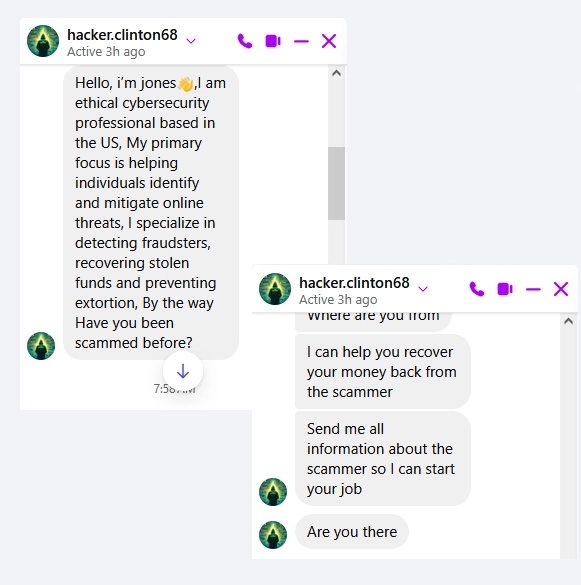
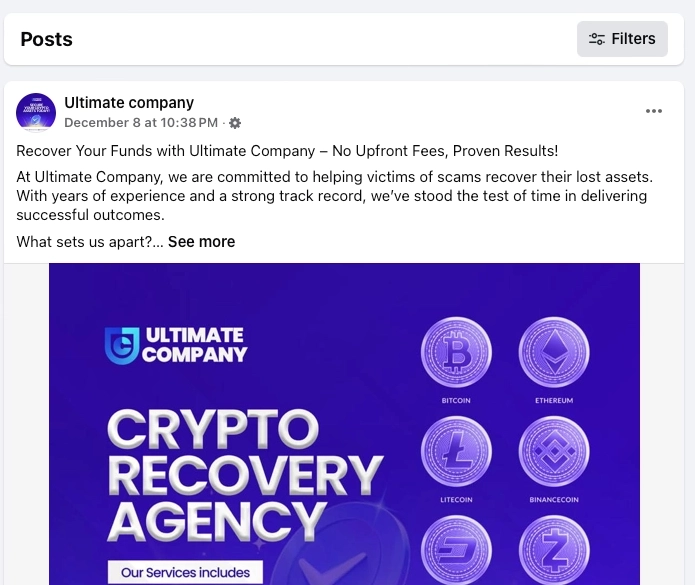
However the offer comes, it feels like a lifeline. Immediate relief floods through you. The timing is perfect. There’s hope. You want to believe.
But of course, there’s a catch – a legal fee, a processing fee, a hacking cost. They may ask you to pay using gift cards, wire transfers, or cryptocurrency. Maybe they claim they need your bank details to facilitate you getting your money back. You agree, because what’s a little more money if you can get back all of what you lost?
And just like that, you’ve been scammed again.
This is the brutal reality of recovery scams, one of the cruelest and most devastating types of scams out there. These scammers prey on scam victims when they’re emotionally drained and desperate for a solution.
No One Can Guarantee You’ll Get Your Money Back
The biggest lie a recovery scammer will tell you is that they guarantee they can get your money back. The truth? No one can make that promise.
The only legitimate sources of assistance or people with any real authority to help you recover funds are:
1) Your Bank or Payment Provider. If you used a credit card or certain types of bank transfers, you may be able to dispute the transaction or request a chargeback. If you paid through PayPal, CashApp, or a cryptocurrency exchange, report the scam immediately to those platforms to explore your options.
2) Law Enforcement. Agencies like your local police, the FBI (IC3), or the FTC can investigate fraud and scam cases. However, even they will never promise to recover stolen funds.
Here’s what real authorities won’t do: demand upfront payment, guarantee anything, or contact you out of the blue for investigation or fund recovery.
If someone does any of the above when offering to “help” you, it’s a scam.
Why Recovery is Difficult and Never Promised
Once money is sent to a scammer – especially via wire transfer, cryptocurrency, or gift cards – it becomes incredibly difficult, and in most cases impossible, to trace and recover.
Scammers will move stolen funds quickly through multiple accounts, often overseas, which makes reversal almost impossible.
Cryptocurrency transactions are irreversible. If you use a cryptocurrency exchange, once the funds leave your account, they cannot be recovered.
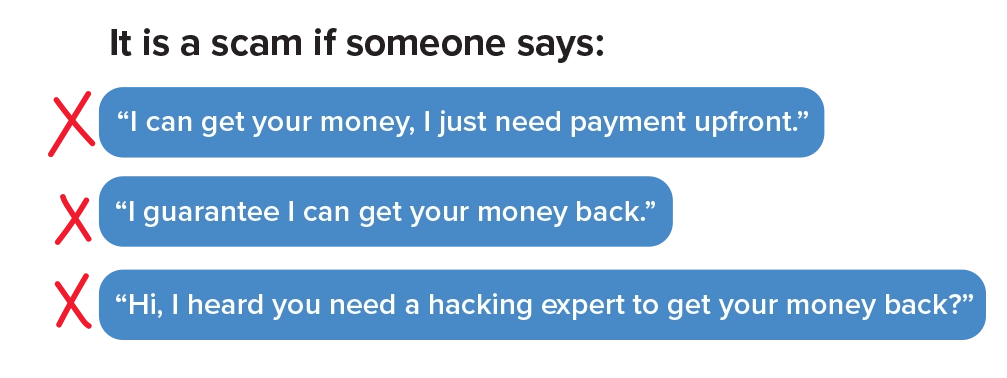
How To Spot A Recovery Scam
Recovery scammers can range from sophisticated cons to low-effort posts on social media with self-proclaimed “ethical hackers” claiming they can hack into scammer accounts, trace stolen funds, and get your money back. Seraph Secure has found countless instances where scammers will take out sponsored ads to advertise their scam services.
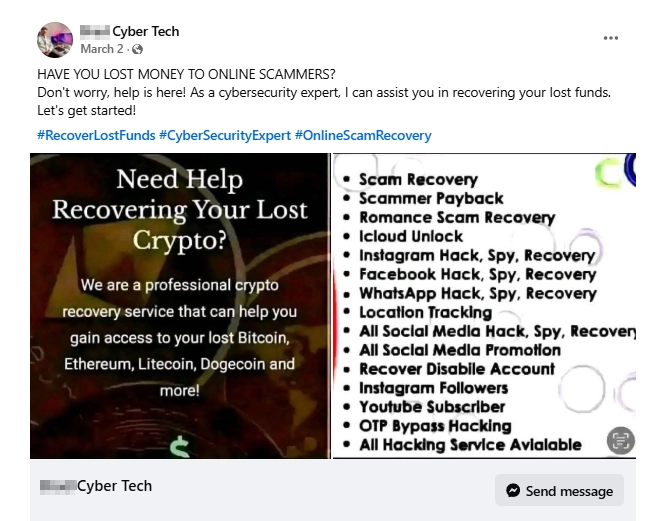
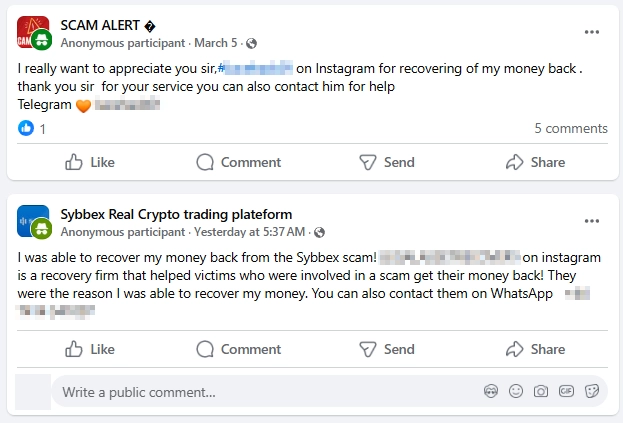
Some of the more sophisticated recovery scammers even partner with the scammers who carried out the original attack so they can better their chances of taking the victim for even more money. These scammers will have detailed knowledge of the original scam, helping them establish credibility with the victim by knowing exactly what happened and having the perfect solution to fix it.
These scammers will often send fake proof of their success in the form of manipulated screenshots, share reviews from other victims they’ve “helped”, or may even claim they work for a scam victim advocacy group.
The reality is this: if hackers could break into scammers’ accounts and retrieve stolen money, banks and law enforcement would already be using them, but they don’t because, despite what we see portrayed in the movies, this isn’t how financial scam recovery works.
The Sliminess of Asset Recovery Firms
Holding a special spot amongst the worst who prey on scam victims are private blockchain investigators and asset recovery firms. These companies operate within legal loopholes, offering services like tracing crypto through the blockchain (anyone can do this, the information is public) and providing evidence reports that supposedly “augment the capabilities of” law enforcement. These reports are often of little value or are downright fraudulent, but these companies have no shame in selling you on the idea of hope.
Despite these claims, law enforcement and regulatory agencies have warned against these asset recovery companies. Actual recovery is dependent on police seizure orders and assistance from cryptocurrency exchanges – the companies claiming they can do this are lying to take advantage of people who have already lost money to criminals.
Even Binance, one of the largest cryptocurrency exchanges, has spoken out against these businesses.
If you were hacked or were the victim of a scam and are thinking of contracting private investigators or one of these recovery asset firms, please reconsider. Keep in mind that what you would most likely be paying for is a report of questionable quality, not the actual recovery of your funds.

What to do if you were scammed:
1. Report it. Contact your bank, file a report with local law enforcement and any relevant government agencies, and report it to any platforms used.
2. Check for any chargeback options with your credit card company or bank. Get in touch with the fraud teams of any third-party money transfer companies or cryptocurrency exchanges you used and find out your options. Don’t wait - the sooner you do this, the better.3. Ignore anyone promising guaranteed recovery. If they ask for money upfront, it’s a scam. If they guarantee they can get your funds back, it’s a scam. If they claim they can hack the scammer and get your money back, it’s a scam. Trust no one that reaches out to you claiming these things.
The Hard Truth: Moving Forward
Losing money to a scam is devastating and what comes next is often even worse. Victims can face a great deal of confusion, shame, and uncertainty. They may question if the money is truly gone or if they have any recourse. They may struggle to report the crime.
There’s no doubt about it, being scammed can shatter your trust in humanity. Some victims even fear turning on their own devices after they’ve been scammed. But recovery scammers take it one step further by weaponizing that desperation, selling you false hope when you’re at your lowest.
The unfortunate truth can be tough to face, but once money is in a scammer’s hands, it’s rarely coming back. Report what you can to whoever you can, secure your devices, share your story with others, and, as painful as it can be, focus on rebuilding.
Seek Support
If you've been scammed, seeking support is crucial. Reach out to friends, family, or others who have experienced similar situations – they can offer comfort and understanding. It’s also important to prioritize your mental health. Speaking with a professional can help you process what happened and provide guidance through your recovery. Remember, you don’t have to face this alone. Support is essential to healing and moving forward.
Scam victim outreach groups that are dedicated to supporting scam victims, providing a community of people who understand and resources to aid in your recovery, are available to help. For more information, please see our Scam Support page.

Need to report a scam? The Seraph Secure Scam Resource Center has compiled contact information for law enforcement, government agencies, and reporting platforms.

